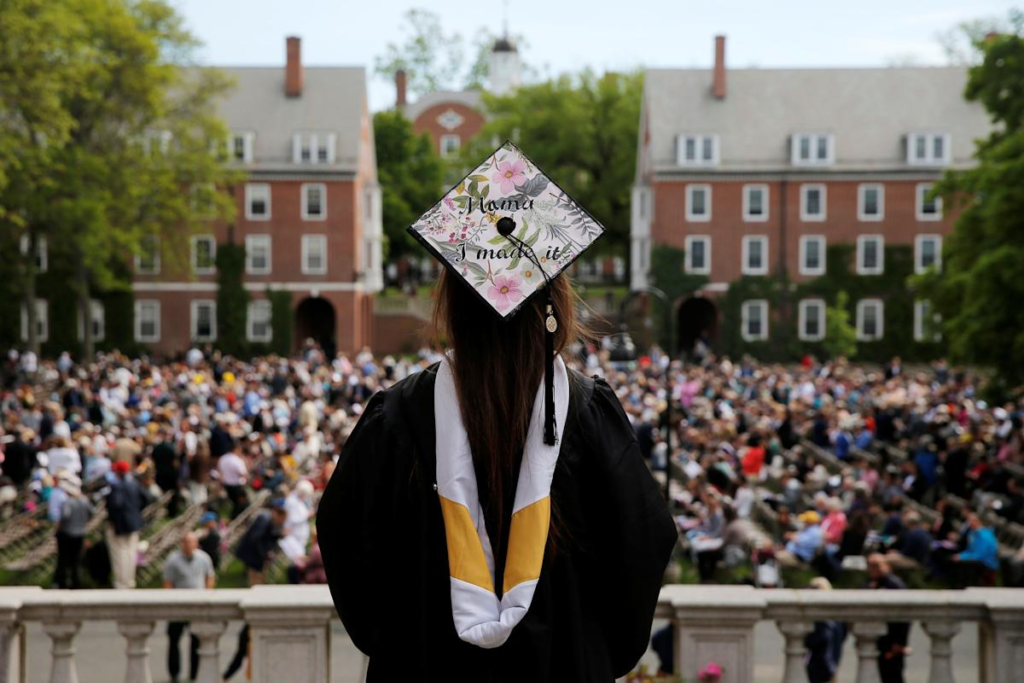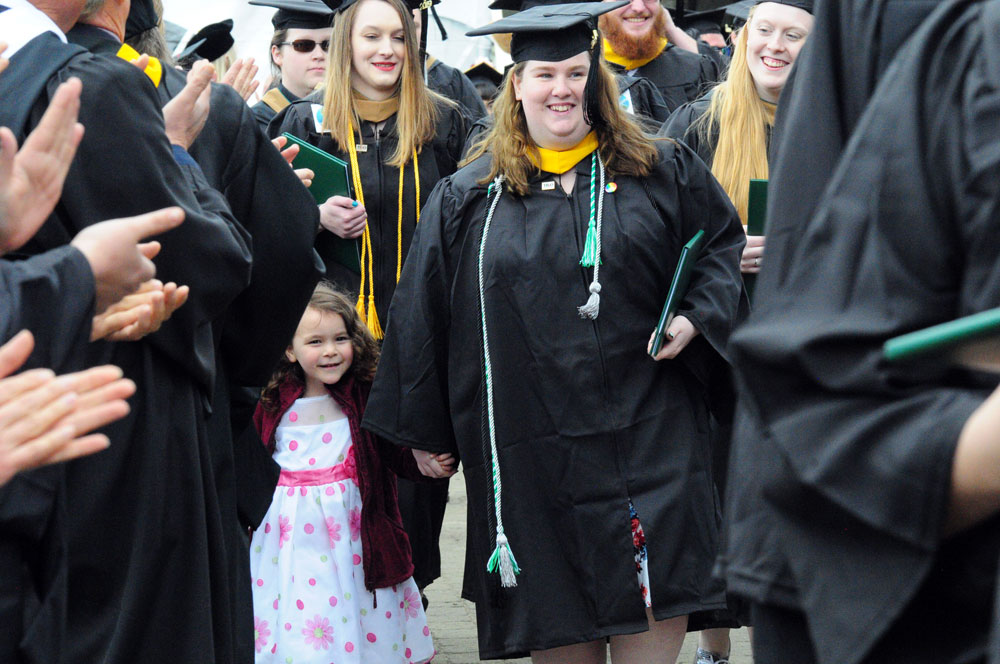In a surprising turn of events at Smith College’s 147th commencement ceremony on May 18, 2025, one of the event’s honorary degree recipients, musician Evelyn Harris, returned her degree after allegations surfaced that she plagiarized portions of her speech. The incident, which has sparked widespread discussion, has raised questions about academic integrity, the value of honorary degrees, and the expectations placed on public figures during such high-profile events. This article explores the details of the controversy, its implications, and the broader conversation it has ignited.

The Commencement Ceremony and the Allegation
Smith College, a prestigious women’s liberal arts institution in Northampton, Massachusetts, celebrated its 150th anniversary during its 2025 commencement. The event featured four honorary degree recipients, including Evelyn Harris, a vocal teacher and former member of the renowned a cappella group Sweet Honey in the Rock. Each recipient was expected to deliver a speech to inspire the graduating class and their families. However, what should have been a moment of celebration quickly became overshadowed by controversy.
On May 20, Smith College President Sarah Willie-LeBreton announced in a letter to the college community that Harris had “borrowed much” of her commencement address from other speeches without proper attribution. According to Willie-LeBreton, this lack of citation violated the principles of academic integrity central to the college’s values. Harris, who has been a performer for over 50 years, admitted to the plagiarism, though she explained that she intended to “infuse the words of others with her own emotional valence.” Following discussions with college officials, Harris chose to relinquish her honorary degree.

The news quickly spread, drawing attention from media outlets and sparking debates on social media platforms. The incident has not only put Harris in the spotlight but also prompted reflection on the expectations placed on commencement speakers and the role of academic integrity in such settings.
Who Is Evelyn Harris?
Evelyn Harris is a celebrated musician known for her 18-year tenure with Sweet Honey in the Rock, a Grammy-nominated a cappella group that blends spirituals, jazz, and folk music to address social justice themes. Her contributions to music and her role as a vocal teacher have earned her recognition as a cultural figure in Western Massachusetts and beyond. Harris was selected as an honorary degree recipient for her artistic achievements and her ability to inspire through her work.
However, the plagiarism allegation has cast a shadow over her accomplishments. While Harris has not publicly commented on the incident beyond her discussions with Smith College, her decision to return the honorary degree suggests an acknowledgment of the seriousness of the situation. The controversy has led some to question how such an oversight could occur, given Harris’s experience and the significance of the occasion.
The Role of Academic Integrity
Academic integrity is a cornerstone of higher education, emphasizing honesty, originality, and proper acknowledgment of sources. Smith College’s Academic Honor Code explicitly states that the institution’s community depends on “scrupulous and attentive acknowledgement of all sources of information.” For a commencement speaker, who serves as a role model for graduates, adhering to these principles is especially critical.
President Willie-LeBreton’s letter underscored this point, noting that Harris’s failure to attribute her sources was inconsistent with the college’s values. The decision to address the issue publicly reflects Smith’s commitment to transparency and accountability, even when it involves a high-profile figure. By relinquishing her degree, Harris took responsibility for her actions, though some argue the incident highlights broader challenges in ensuring originality in public speaking.

Public Reaction and Social Media Buzz
The news of Harris’s plagiarism sparked varied reactions online, particularly on social media. Some users expressed disappointment, arguing that a commencement speech should be a personal and authentic reflection of the speaker’s experiences. Others, however, questioned the severity of the response, with one commenter on a popular platform asking, “Aren’t all commencement speeches pretty much the same fluff?” This sentiment was countered by those who emphasized that each speech should reflect the speaker’s unique perspective, even if it draws on common themes of inspiration and achievement.
Interestingly, some online discussions shifted away from the plagiarism itself and toward the concept of honorary degrees. Critics argued that these degrees, often awarded to public figures for their contributions to society, can sometimes feel ceremonial rather than substantive. The controversy at Smith College has reignited debates about whether honorary degrees carry the same weight as earned degrees and whether they should be subject to the same standards of accountability.
The Broader Context of Plagiarism in Academia
The incident at Smith College comes at a time when issues of academic integrity are under increased scrutiny, particularly with the rise of artificial intelligence tools. Earlier this month, a student at another Massachusetts college demanded a tuition refund after discovering that a professor had used AI to generate classwork. The parallels between these cases highlight growing concerns about authenticity in academic settings, whether it involves AI-generated content or unattributed material in speeches.
Plagiarism at commencement ceremonies is particularly disheartening because it detracts from the celebration of students’ achievements. As one observer noted, a graduation is meant to honor the graduating class, not the speakers. When a speaker’s actions overshadow the event, it can feel like a betrayal of the audience’s trust. Smith College’s swift response, however, demonstrates a commitment to addressing such issues head-on, ensuring that the focus remains on the graduates.
What’s Next for Smith College?
Smith College has not yet announced whether it will select a replacement speaker for future ceremonies or how it plans to address the fallout from this incident. The college’s other honorary degree recipients—Harvard professor Danielle Allen, former Assistant Secretary for Health Rachel Levine, and writer Preeti Simran Sethi—delivered their speeches without controversy, highlighting the diversity of perspectives shared at the event. However, the plagiarism allegation has prompted questions about how institutions vet their speakers and ensure the originality of their remarks.
Moving forward, Smith College may consider implementing stricter guidelines for commencement speeches, such as requiring speakers to submit drafts in advance or providing clear expectations about attribution. The incident also serves as a reminder that public figures, even those with distinguished careers, must uphold the same standards of integrity expected of students.
Lessons Learned
The Evelyn Harris plagiarism controversy is a cautionary tale about the importance of authenticity and accountability. For commencement speakers, the pressure to deliver a memorable and inspiring address can be immense, but borrowing from others without credit undermines the message and the occasion. Harris’s decision to return her honorary degree reflects an understanding of this principle, though it does little to erase the disappointment felt by some in the Smith College community.
For students, the incident serves as a real-world example of why academic integrity matters. It’s a reminder that shortcuts, whether intentional or not, can have significant consequences. For institutions, it’s an opportunity to reevaluate how they select and prepare speakers to ensure that commencement ceremonies remain a celebration of achievement and originality.
Conclusion
The plagiarism allegation against Evelyn Harris at Smith College’s 2025 commencement has sparked a broader conversation about integrity, accountability, and the role of honorary degrees. While the incident has undoubtedly left a mark on the college’s milestone celebration, it also offers a chance to reflect on the values that define academic communities. As Smith College moves forward, it will likely seek to restore the focus on its graduates and their accomplishments, ensuring that future ceremonies are defined by inspiration rather than controversy.
Also read :- Consumers Embrace Eco-Friendly Tech: Sustainable Gadgets Take Center Stage in 2025






